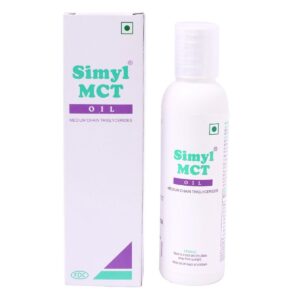IMPORTED MCT OIL + PERMITTED ANTI-OXIDANTS
Imported Mct Oil: Imported MCT oil is a dietary supplement that is derived from medium-chain triglycerides (MCTs). MCTs are a type of fat that is found in certain foods, such as coconut oil and palm kernel oil. MCT oil is typically used as a nutritional supplement due to its unique properties and potential health benefits.
MCT oil is commonly used as a source of energy, especially for individuals following a ketogenic diet. It is also believed to aid in weight loss and improve exercise performance. Additionally, MCT oil may help in managing certain health conditions, such as epilepsy, Alzheimer’s disease, and irritable bowel syndrome.
The mechanism of action of MCT oil lies in its chemical structure. Unlike long-chain triglycerides (LCTs), MCTs are easily digested and absorbed by the body. They are rapidly broken down in the liver to produce ketones, which can serve as an alternative fuel source for the brain and muscles. This makes MCT oil an efficient energy source, particularly for individuals who are unable to efficiently metabolize carbohydrates or are in a state of fasting.
The recommended dose of imported MCT oil may vary depending on the individual’s age, weight, and specific health conditions. It is generally recommended to start with a small dose, such as 1 tablespoon (15 mL) per day, and gradually increase the dose as tolerated. It can be consumed plain or added to drinks, smoothies, or food.
While MCT oil is generally considered safe, it can cause some side effects, especially if consumed in excessive amounts. Common side effects include gastrointestinal issues, such as diarrhea, nausea, and stomach discomfort. These side effects can be minimized by starting with a low dose and gradually increasing it to allow the body to adjust.
It is important to note that MCT oil should not be used as a replacement for a balanced diet or as a sole source of nutrition. It should be used as a supplement in conjunction with a healthy diet and lifestyle. It is recommended to consult with a healthcare professional before starting MCT oil supplementation, especially for individuals with underlying medical conditions or those taking medications.
Permitted Anti-Oxidants: I’m sorry, but I couldn’t find any specific information about a drug called “Permitted Anti-Oxidants.” It’s possible that you may be referring to a group of substances that are permitted as antioxidants in certain countries or industries.
However, I can provide general information about antioxidants and their use.
Antioxidants are substances that help protect cells against the damaging effects of reactive oxygen species (ROS) and free radicals. They work by neutralizing or inhibiting the formation of these harmful molecules, which can cause oxidative stress and damage to cells.
Some common antioxidants found in various foods and supplements include vitamins C and E, beta-carotene, selenium, and flavonoids. These antioxidants are believed to have a range of health benefits, including reducing the risk of chronic diseases such as heart disease and cancer, as well as supporting overall cellular health.
The use of antioxidants can vary depending on the specific substance being used. They are commonly consumed through a balanced diet that includes a variety of fruits, vegetables, nuts, and seeds. Alternatively, antioxidant supplements may be used in cases where dietary intake is insufficient.
The recommended dose of antioxidants varies depending on the specific substance, age, and individual needs. It is best to consult with a healthcare professional or follow the suggested dosage instructions on the supplement packaging.
As for side effects, antioxidants are generally considered safe when consumed in appropriate amounts through a balanced diet. However, high doses of certain antioxidants can potentially cause adverse effects. For example, excessive vitamin E intake may cause bleeding or interfere with blood clotting. Additionally, it’s important to note that some studies have suggested that high-dose antioxidant supplements may have limited or even negative effects on certain health conditions, such as cancer.
It’s crucial to consult with a healthcare professional before starting any new antioxidant supplements or making significant changes to your diet. They can provide personalized advice based on your specific health needs and any potential interactions with other medications or conditions.

